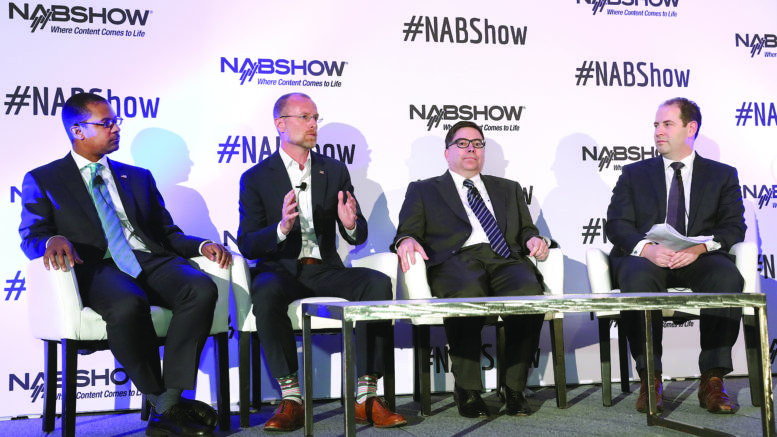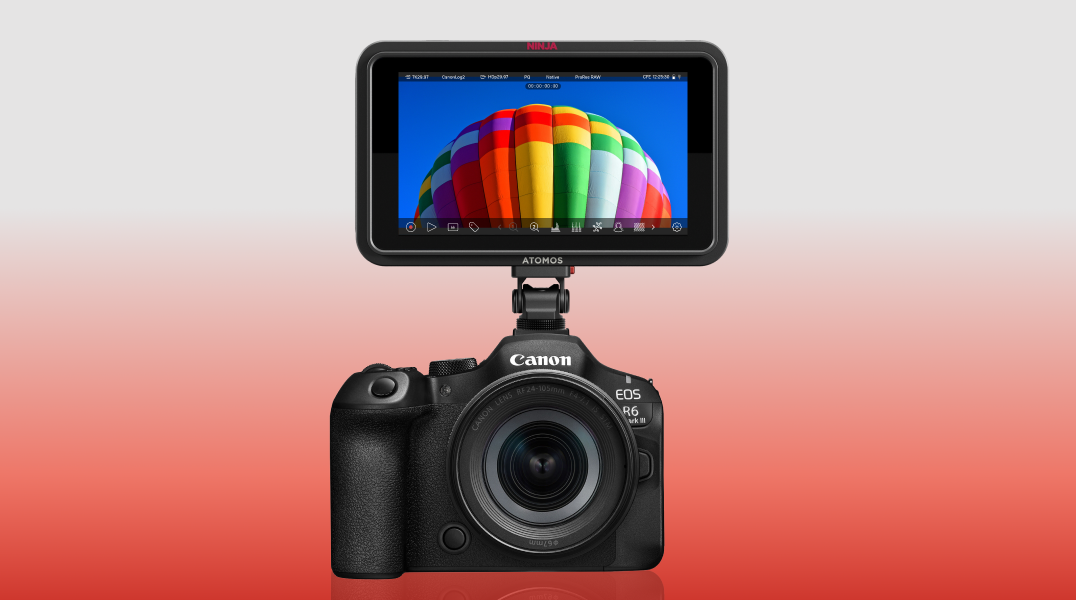FCC Commissioners Discuss Ownership Diversity
LAS VEGAS—Three FCC commissioners shared the stage for the panel “Raining 3s: A Q&A With FCC Commissioners O’Rielly, Carr and Starks.” Gordon Smith, NAB president and CEO, introduced Michael O’Rielly, Brendan Carr and Geoffrey Starks, describing the panel as “unusually important.”

Moderating the session, Rick Kaplan, NAB executive vice president of legal and regulatory affairs, brought up the subject of ownership of TV stations. Carr said ownership rules were scripted when a morning paper and an evening newscast represented the extent of local news voices. “The market you all compete in today is vastly different,” he said, mentioning Pandora, Spotify and the “Silicon Valley giants” as prominent competitors to local TV. “We’re mindful of the tremendous competition you are facing.” He also described the importance for a regulator to get out and about to see how ownership groups operate.
Starks, the only Democrat of the three, mentioned the practice of some large broadcast operations of writing news scripts to be shared throughout their groups and across the country. Without singling out any companies, he lamented a lack of localism in such cases.
He also cited statistics that of more than 1,300 TV stations nationwide, 102 are owned by women, 62 by Latinos, 12 by African-Americans and 10 by Asians.
“Diversity in media ownership is something that’s become critically important to me,” he said, calling it “deeply troubling” when station ownership does not reflect the nation generally. Starks cited access to capital as an issue for minority ownership, along with access to opportunity.
O’Rielly brought up a program designed to bring more minority owners into radio. “We have an incubator program on the radio side, how do we do it on the TV side?” he said.
Carr mentioned the struggles newspaper owners are going through, and said they might have been helped by changes years ago in newspaper/station cross-ownership limitations. “It’s really incumbent on us to update our rules, to understand the marketplace,” he said.
The professional video industry's #1 source for news, trends and product and tech information. Sign up below.
TV station sales were lively in 2018, Starks noting that they outpaced transactions the year before. “This is still a nice, robust business,” he said.
When Kaplan asked about the TV repack, O’Rielly said he is “generally pleased with where things are at the moment.” Carr noted that he had climbed a broadcast tower in Rowena, South Dakota, and developed a new appreciation for what tower teams accomplish.
Carr said he considers the incentive auction to have been a success, and O’Rielly noted that the demand for mid-band spectrum is “off the charts.”
O’Rielly saluted his fellow Republican, FCC Chairman Ajit Pai, for clamping down on pirate radio, and said some politicians advertise on illegal stations, calling it “not acceptable behavior.” On the subject of Equal Employment Opportunity, he also stressed that broadcasters don’t need a government mandate in their EEO efforts. “The vast majority of broadcasters are doing a wonderful job,” he said.
As the panel wound down, each of the commissioners saluted broadcasters for their efforts when extreme weather and other calamities hit their communities. “In times of crisis, no one stands up bigger than the broadcaster,” said O’Rielly.
Carr admired how stations that normally compete ruthlessly will work together when it comes to covering these crises. “Hopefully you’ll find the FCC a good partner in those efforts,” he said.
The FCC returned to full strength in January when the U.S. Senate confirmed Starks and approved Carr to a full term. Jessica Rosenworcel holds the remaining seat.
